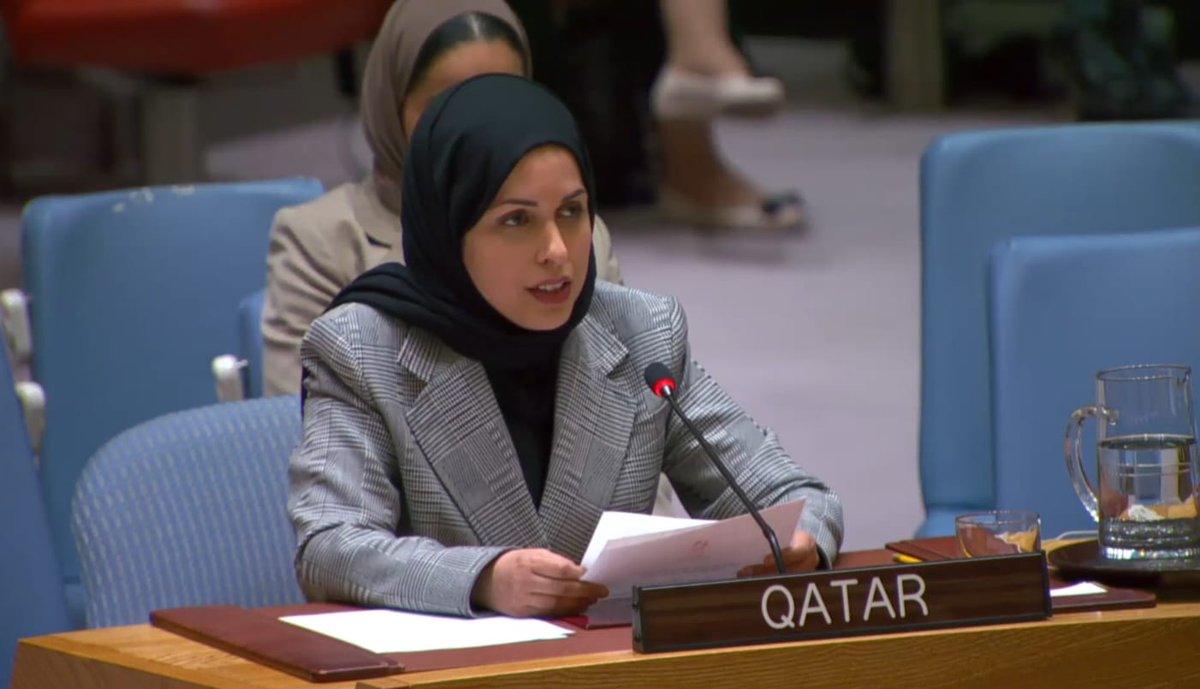Qatar’s commitment to advancing women’s participation in peace and security efforts was reaffirmed by Her Excellency Sheikha Alya Ahmed bin Saif Al Thani, Qatar’s Permanent Representative to the United Nations. In a discussion at the Security Council in New York, she emphasized the importance of supporting the Women, Peace, and Security (WPS) agenda in achieving the 2030 Sustainable Development Goals. Despite progress in this area, many conflict zones still witness serious violations of international laws, disproportionately affecting women and girls. She highlighted the urgent need to translate political commitments into tangible actions and empower women in conflict prevention and response.
Sheikha Alya expressed pride in Qatar’s support for the UN Secretary-General’s “Joint Pledge for Women’s Participation in Peace Processes” and emphasized the significance of the 25th anniversary of UN Security Council Resolution 1325 as an opportunity to reflect on the impact of the WPS agenda. Underlining the importance of the agenda’s pillars – prevention, protection, participation, and relief and recovery – she welcomed the “Charter for the Future” as a critical platform for advancing these goals. She stressed the essential role of women’s full and equal participation in decision-making processes for lasting global stability and peace.
In response to the discussion, Her Excellency urged the international community to act on political will by implementing specific measures and establishing accountability mechanisms to monitor progress in women’s involvement in peace initiatives. She emphasized the importance of building local capacities and engaging women at all levels to shape sustainable peace outcomes. She also highlighted Qatar’s active membership in the Arab Network for Women Peace Mediators, which promotes women’s participation in peacebuilding. The impact of emerging technologies on peace processes was also addressed, with a call for robust safeguards to protect women and provide them with resources to confront challenges safely.
Overall, Qatar’s commitment to the Women, Peace, and Security agenda is unwavering, as highlighted by Sheikha Alya’s statements at the Security Council discussion in New York. The importance of supporting women in conflict zones, empowering them in prevention and response efforts, and ensuring their full participation in decision-making processes were key points emphasized by Her Excellency. The need to translate political commitments into actionable steps and to expedite progress across the agenda’s pillars was underlined, with a call for increased awareness of women’s vital role in achieving lasting peace. Qatar’s active support for the UN Secretary-General’s pledge and the upcoming anniversary of Resolution 1325 demonstrate its dedication to advancing the global agenda on women, peace, and security.
In conclusion, Qatar’s commitment to working with the international community to elevate the status of women in peace and security efforts is a testament to its dedication to achieving global stability and sustainable peace. The importance of empowering women in conflict zones, engaging them at all levels of decision-making, and addressing the challenges posed by emerging technologies was underscored by Sheikha Alya’s statements. With the upcoming anniversary of Resolution 1325 and the adoption of the “Charter for the Future,” Qatar remains steadfast in its efforts to advance the Women, Peace, and Security agenda and ensure women’s full participation in peace processes for a more peaceful and secure world.










